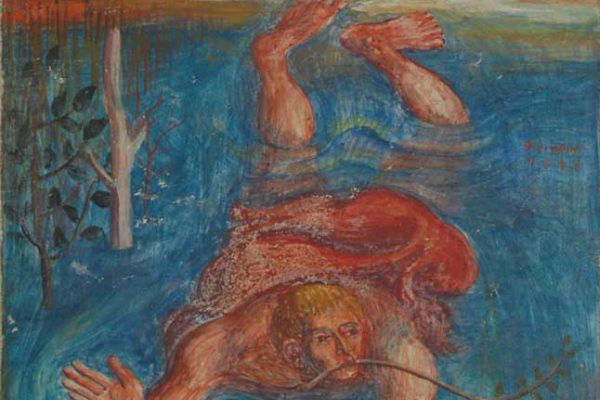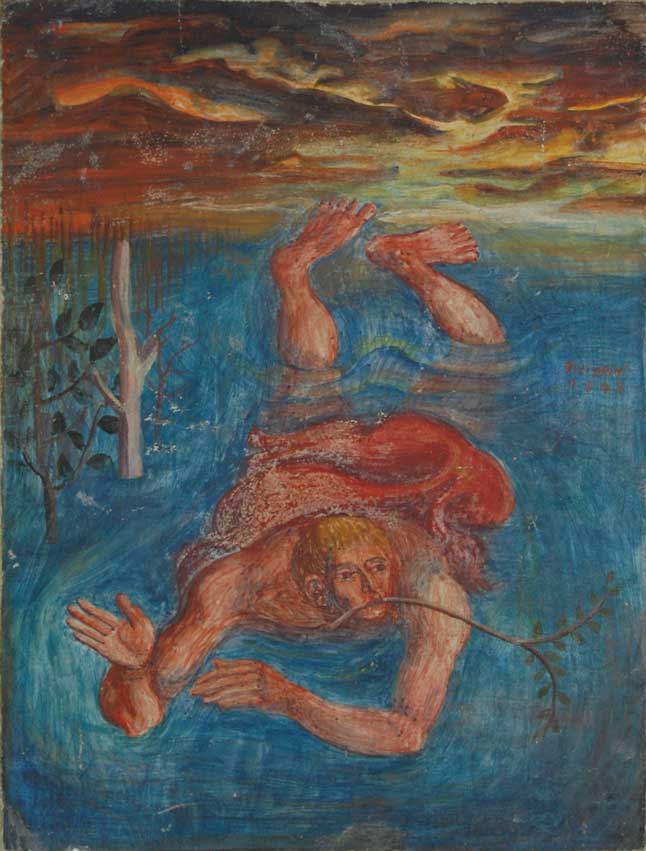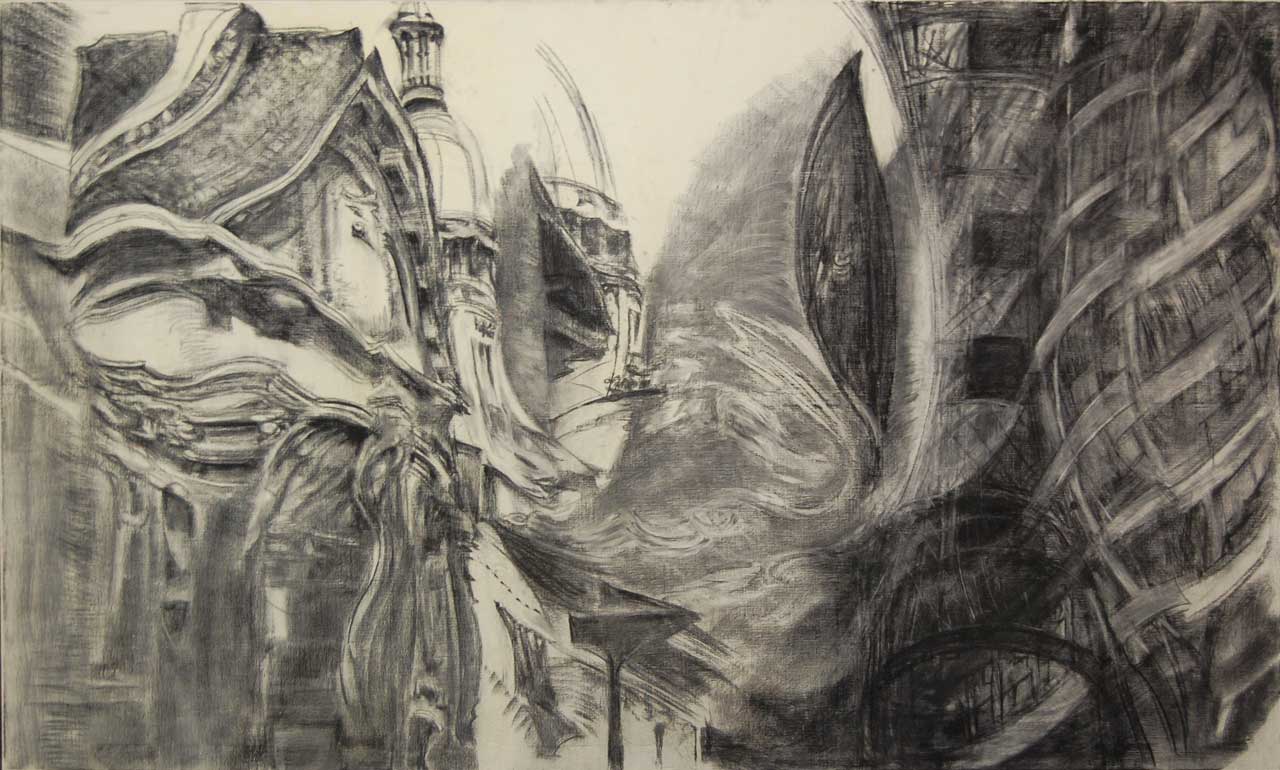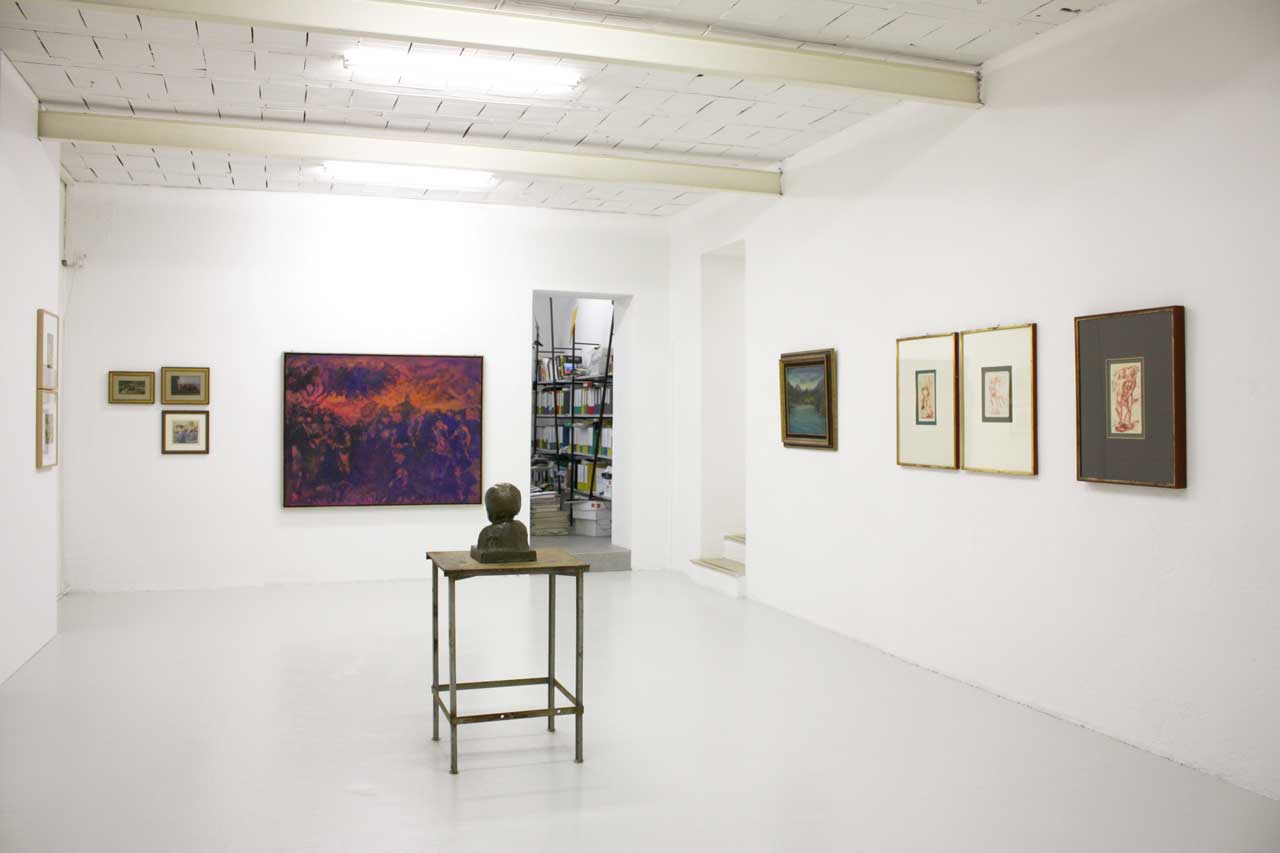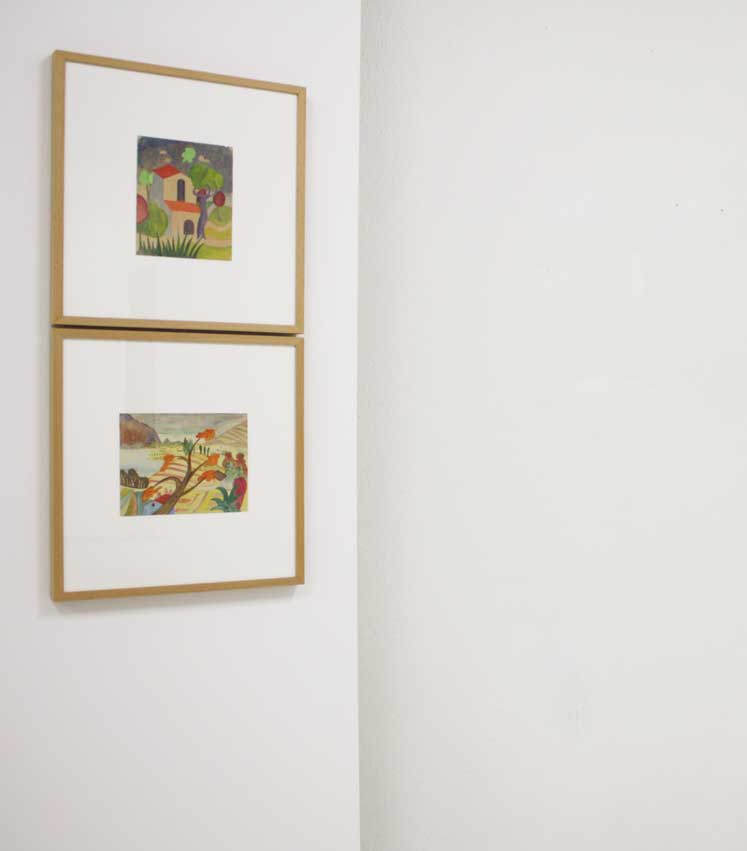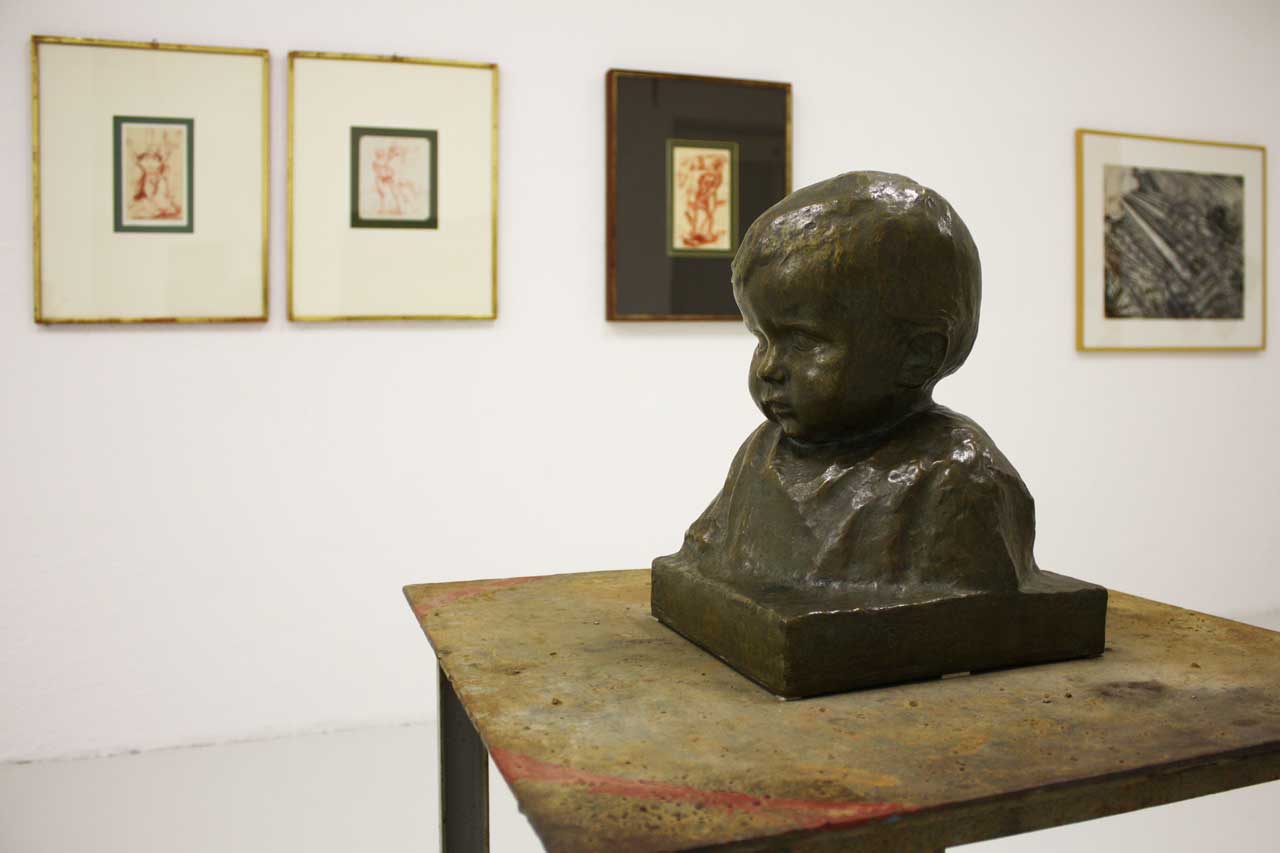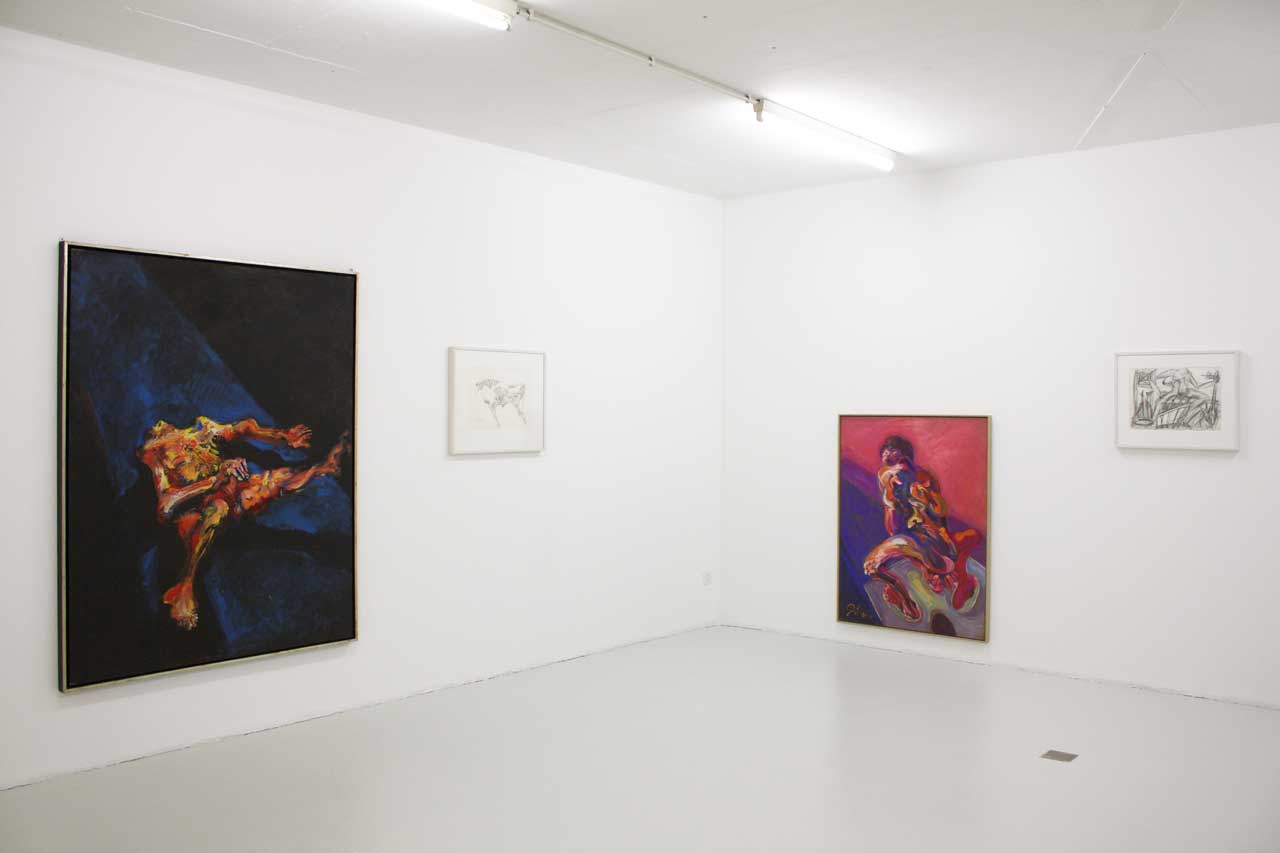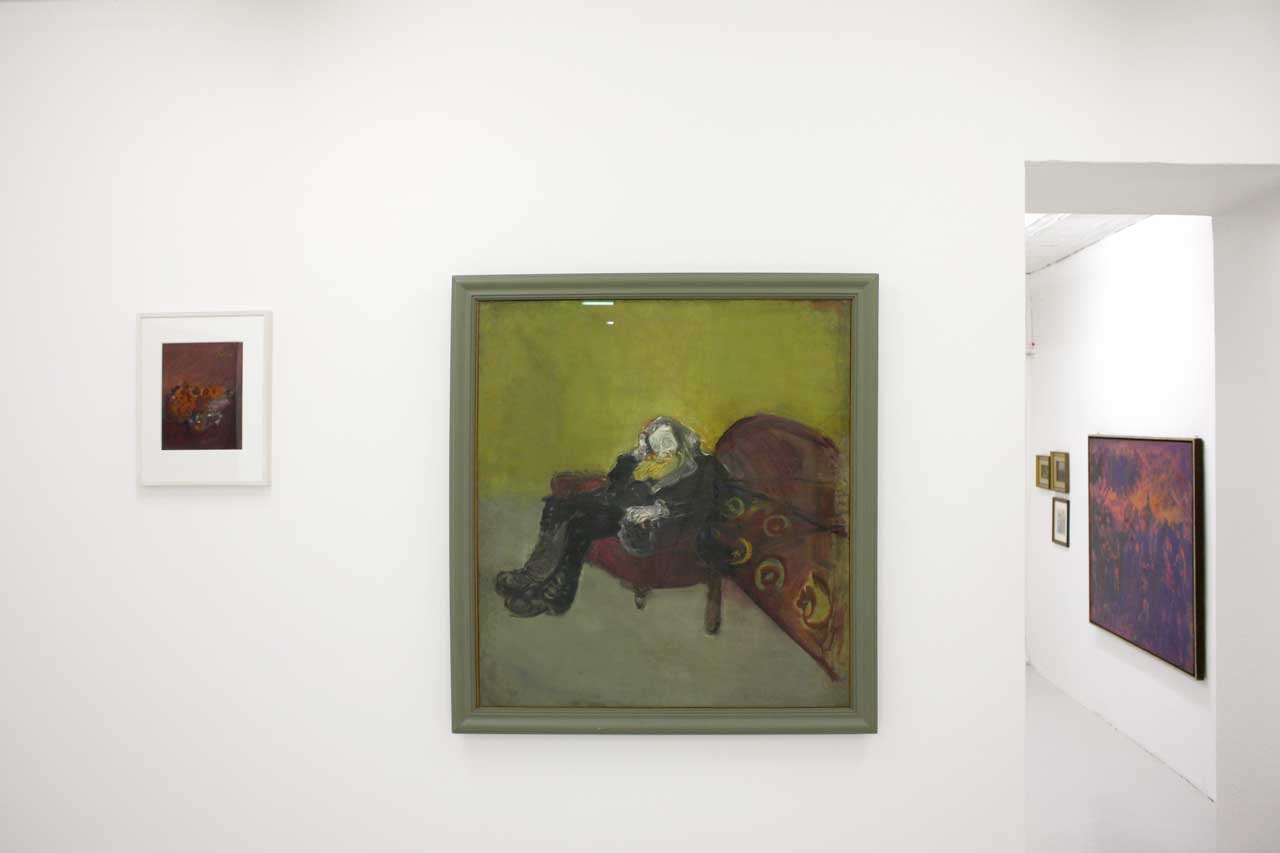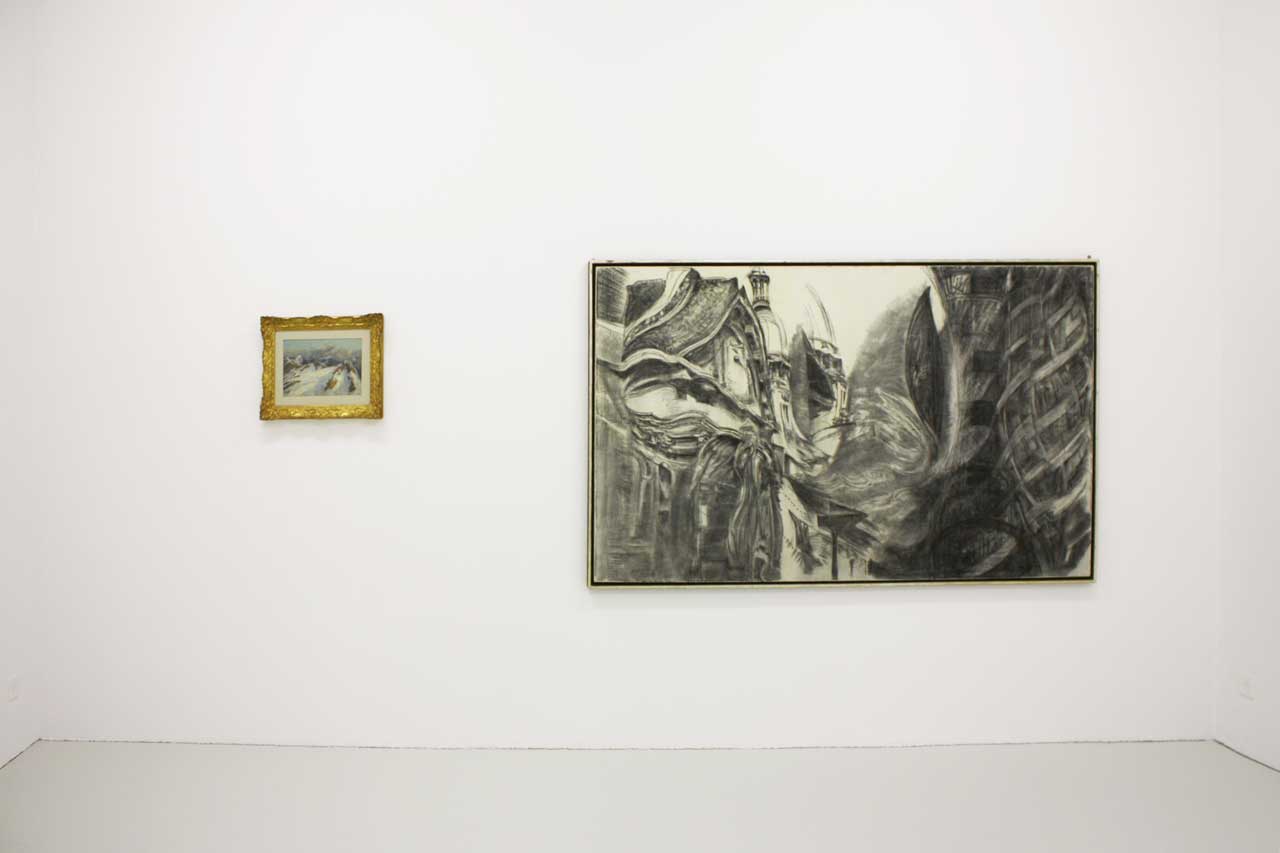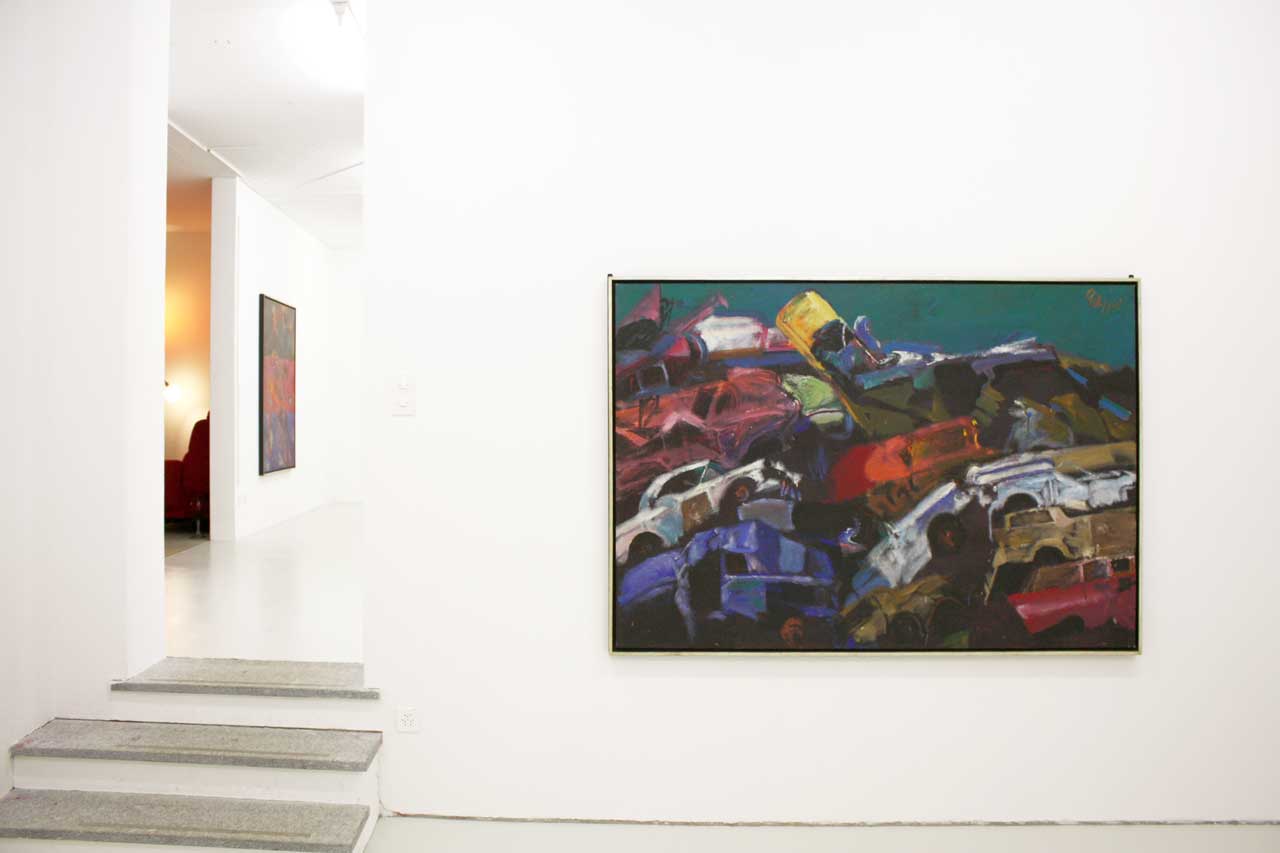Subtle Psycho-Geographies: a Calvary for the Image.
FELICE FILIPPINI / Jean Corty / Martin Disler / Otto Dix / Aurelio Gonzato / Hermann Hesse / Apollonio Pessina / Luigi Rossi / Louis Soutter / Varlin
8 September – 4 November 2012
On 8 September 2012 at 5.30 p.m., the MACT/CACT CONTEMPORARY ART IN CANTON TICINO is inaugurating an exhibition with some strictly museum-like traits, albeit with considerable aperture towards a strong character who still arouses much opposition in cultural environs on the southern side of the Alps. As always, what the exhibition’s curators are tackling is not so much this great artist’s vision and his consequential impact on his native soil, as his deserved repositioning on the international art scene that came about during the great century of the avant-gardes and what goes by the epithet of modernity: those self-same methods of critical approach to the cultural and artistic milieu, restricted to the twentieth century, as a notable period in history not only of intellectual ferment, but also – and simultaneously – of a particular crisis of both cultural and social change. This exhibition is a tribute to the stateless, eclectic figure of FELICE FILIPPINI (1917-1988), a writer, painter, journalist and thinker, who was cynical and reserved with regard to the dominant fashions and the social fabric in which he lived and worked. It is above all the facet of Filippini that sees him as a painter that will be tackled in this exhibition, which is rendered unique by its capacity to compare his visual output – from the end of the thirties to the end of the eighties – with the contemporary international scene: from his ideal identification with the Roman School and with Corrente, the literary artistic magazine outlawed by Mussolini’s Fascist regime in 1940, right up to his verging on Nordic Expressionism, in both cases starting from their Renaissance roots. Born at the height of the Great War, whose moral and social disasters of a collapsing old European world order are recorded here by the presence of a work by Otto Dix (1891-1969) dating to 1917, Felice Filippini skilfully established a dialogue with the cultural humus of the following years and the artists who populated them and in one way or another nourished and regenerated his professional curiosity and the historical and societal ambient in which this Ticino native found himself working: from the period just after the second World War until his death. The benchmarks cited in this exhibition include early references to the Swiss painter Luigi Rossi (1853-1923), an exponent of the nineteenth-century movement in Lombardy that – with Filippo Franzoni, Mosè Bianchi, Daniele Ranzoni, Federico Faruffini, Tranquillo Tremona and all the Lombard Scapigliatura in general, as well as others – breathed life into a vigorous artistic movement with a cross-border relevance between Ticino and Milan. The no less significant presence of such artists as Apollonio Pessina (1879-1958), Jean Corty (1907-1946) and Aurelio Gonzato (1914) constitutes a signal lesson and clear evidence of the extent to which the cultural osmosis between these Ticino artists and the ferment on the international art scene produced personalities of notable creative and cultural substance, in a Canton that has always been averse to acknowledging its native sons, or even to taking an interest in them. Ever reluctant to yield to the siren songs of fashions and the avant-gardes, as a crucible of a tireless coherence more of style than of content, in the third phase of his artistic career, Filippini concentrated on the figure of man and his roots, of the society that gives birth to and educates him, while nevertheless perceiving the drastic sea-change that was already then about to burst upon him and was soon to revolutionise the second half of the last century, culminating in the crisis of ideologies heralded by the new millennium, as terrible as it has been irreversible and ultimately real: the fall of the middle-class model and its presumptions. The works he created at the end of the eighties – The Modern City (1988) and The Auto Cemetery (1987) – stigmatise and somehow represent the process of meltdown at work as the twentieth century drew to its close. Water, death, the ship that bears survivors or humanity that falls and passes on, love affairs and sensual passions: these are the themes he developed obsessively, stripping every possible inhibitory veil from his emotional, ever-dissatisfied feeling and striving to reveal the mystery of existence and of its inexorable ending. Life, Death and Sexuality, like so many assumptions of human vanity, are represented here in a more terminological vein: the artist’s rapid and colourful gesture and the fragmentation of a society in search of an identity refer back to brutal Expressionist figures like Martin Disler (1949-1996), Louis Soutter (1871-1942) and Varlin (1900-1977). With his important literary work IL SIGNORE DEI POVERI MORTI (The Lord of the Poor Dead, 1942), Felice Filippini left a testimony of a profoundly honest personality who was capable, like every true artist, of stating when the emperor wears no clothes, upsetting the social conventions of the priggish post-war European approach to global development and economic universality.
Mario Casanova, 2012 (translation Pete Kercher)
Where
MACT/CACT
Museo e Centro d’Arte Contemporanea Ticino
Via Tamaro 3, Bellinzona.
Opening hours
Friday, Saturday, Sunday
2 p.m. – 6 p.m.

